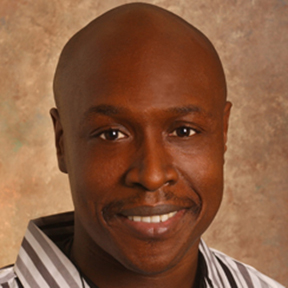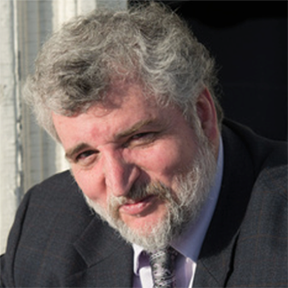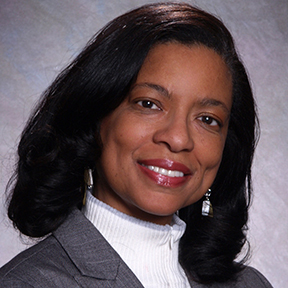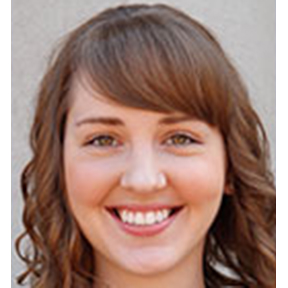Community Engagement, Critical Thinking, Digital Humanities, Digital Storytelling, Engaging Difference, June 4
Date: Thursday, June 4
Time: 9:00 – 10:00 a.m.
Location: Mitchell Auditorium
Video Street Ethnography from Summer Faculty Institute 2015
 Yasser A. Payne
Yasser A. Payne is an associate professor in the Department of Black American Studies at the University of Delaware. His street ethnographic research program is centered on exploring notions of resiliency with the streets of Black America using an unconventional methodological framework entitled Participatory Action Research–the process of involving members of the population of interest on the actual research team.
His approach to diversity is centered on exploring or examining the variation of psychological identity as it relates to Black and Brown populations involved with the criminal justice system. In most instances, such populations are framed in a monolithic way and Dr. Payne through his research has found great emotional, psychological and developmental variation. Also, he aims to break down or through stereotypical barriers and images of Black and Brown people in the criminal justice system, so that transition back in the community and opportunities for upward mobility are successful. Dr. Payne’s work is centered on humanizing those in the criminal justice system and getting undergraduate and graduate students as well as faculty and/or everday residents to work more closely with those in the criminal justice system.
Critical Thinking, June 4
Date: Thursday, June 4
Time: 10:30 – 12:00 noon
Location: Gore Hall 103
Any Questions from Summer Faculty Institute 2015
“Judge a teacher by their questions rather than their answers” (with apologies to Voltaire) sums up this session nicely. Through the perspectives of 3 faculty, this session will demonstrate several techniques that break from lecture mode and encourage thoughtful participation and meaningful discussion. The presenters have applied these techniques in classes of 10 to 120, in a mix of face-to-face and online class formats. You’ll experience over 12 specific models for questioning that can be applied to your course.
 Terry Harvey, Computer & Information Sciences
Terry Harvey, Computer & Information Sciences
Terry Harvey, Associate Professor of Computer Science, received his BS in Marketing and his PhD in Artificial Intelligence from the University of Delaware. Harvey uses problem-based ;earning and clickers to keep classes engaged, and likes projects that require collaborations outside the classroom. He has taught a Software Engineering course that collaborates with an Art class to produce serious games, and also “Educational Game Design for the XO Laptop” in which UD student teams collaborate with local middle school teachers to design and implement educational games for the middle school classroom. Working with Profeessor Lori Pollock, the XO collaboration received a 3-year grant from the NSF’s Broadening Participation in Computing program. Harvey was awarded the University’s Excellence in Teaching Award in 2009.
 Anja Leefeldt, Dietetic Internship Program
Anja Leefeldt, Dietetic Internship Program
Anja Leefeldt is the Dietetic Internship Director at the University of Delaware. The course content for the internship program is delivered in an online format, so Anja has trialed several strategies for enhancing student engagement and critical thinking in the absence of regular face-to-face contact. She will share some of the strategies from her experiences teaching online and in the classroom. Prior to teaching, Anja worked as a clinical dietitian for 12 years.
 Richard Gordon, Computer & Information Sciences
Richard Gordon, Computer & Information Sciences
Most UD faculty know Richard Gordon as the Manager of UD’s IT Communication Group, but he also holds a secondary appointment as adjunct assistant professor of Computer and Information Sciences (CISC). He has 25 years teaching experience at the university level: Seven years in the English departments at the University of Missouri and the University of Delaware, and 18 years in UD’s CISC department. At the 2015 Institute, he will share his experiences teaching CISC355 (Computers, Ethics, and Society—1995-2013) and CISC356 (Intellectual Property in the Digital Age—2008-2015). This will be Richard’s sixth appearance in a UD Faculty Institute session.
In his primary job in UD IT, he has actively supported faculty and student use of technology, developed support for and communication about information security, and written and presented about a variety of IT-related topics, including a stint as technology columnist for the Wilmington News Journal. Outside UD, he is known as the bassist with the local old-time band Tater Patch and the host of two public affairs programs on WVUD radio, Campus Voices and The Music Room.
Community Engagement, Engaging Difference, June 4
Date: Thursday, June 4
Time: 10:30 – 12:00 noon
Location: Gore Hall 104
A Continuum from Outreach to Engagement from Summer Faculty Institute 2015
Community Engagement Project Development
Community Engagement Presentation Slides
Community Engagement Rubric
During this workshop, participants will gain knowledge about teaching, research, service and arts based community engagement projects.
A. Defining Community Engagement
- Describe Carnegie Foundation core definitions that influenced our achievement of the Carnegie designation
- Highlight examples of community engagement at UD from the Carnegie Application (utilize videos from our Carnegie Celebration)
- Explore a continuum of Community Engagement
- Differentiate outreach and engagement (via a rubric)
- Outline areas of growth identified by the Carnegie Foundation: assessment, faculty rewards, mutuality in partnerships
B. Synthesis Activity
- Participants will gather in small groups (various colleges represented in each group) and each group will be provided an example of community engagement. The group will discuss the example and identify where the example belongs on the continuum and explain why.
- Each group will present their rationale and the facilitators will lead discussion about how each example is important and how to enhance community engagement.
C. Reflection
- Ask individual participants to brainstorm an idea for a community engagement project within their discipline.
- Participants will be encouraged to join the second workshop after lunch to flesh out their example further through activities developed.
 Lynette Overby, Theatre
Chair of the Community Engagement Commission at the University of Delaware
Lynette Overby, Theatre
Chair of the Community Engagement Commission at the University of Delaware
Lynnette Young Overby, Ph.D. is a Professor of Theatre and Dance, and Chair of the Community Engagement Commission at the University of Delaware. She is the author or coauthor of over 40 publications including eight books. Her honors include the 2000 National Dance Association Scholar/Artist, and the 2004 Leadership Award from the National Dance Education Organization. She is a strong believer in interdisciplinary education and community engagement. A daCi International At-Large board member, she is the archivist for the organization Dr. Overby is currently collaborating with literary historian P. Gabrielle Foreman on a long term “Performing African American History” research project. She was a member of the dance writing team for the new National Core Arts Standards.
 Jules Bruck, Landscape Design
Jules Bruck, Landscape Design
Jules Bruck, ASLA, PLA, is Associate Professor of Landscape Design at the University of Delaware, where she teaches courses in design process, CAD, field sketching, and planting design. She also teaches landscape design courses at Longwood Gardens, Mt. Cuba and the Barnes Foundation. She is a registered landscape architect and a permanently certified member of the Association of Professional Landscape Designers. She owns and operates Evolution Landscape Design, LLC with her husband, Tony. With a love of travel and interest in experiential education, Dr. Bruck has conducted many study abroad trips to highlight design in both Brazil and Europe. Her current research interests are in design based learning and public perception of sustainable landscape practices such as designing for ecosystem services. Dr. Bruck has a Ph.D. from Texas A&M University. Visit www.julesbruck.com
 Jon Cox, Art
Jon Cox, Art
Jon Cox is an Assistant Professor in the Department of Art and Project Liaison in the Interdisciplinary Science and Engineering Lab at the University of Delaware. He has served as a Board Member of the Dorobo Fund for Tanzania since 2006. Cox’s latest published work was a six-year documentary book project with hunter-gatherers in Tanzania titled Hadzabe, By the Light of a Million Fires. Cox has directed over twenty photographic study abroad programs across the globe including destinations to Antarctica, South East Asia, Tanzania, Australia, Tasmania and several countries in South America. He was a pioneer in the field of digital photography, served as the adventure photographer/writer for Digital Camera Magazine and authored two Amphoto digital photography books. Cox is the 2014 co-recipient of a National Geographic – Genographic Legacy Fund Grant to support a collaborative cultural mapping initiative with the Ese’Eja hunter-gatherers living in the Amazon basin of Peru.
 Kate Colyer, Residence Life & Housing
Kate Colyer, Residence Life & Housing
As a Complex Coordinator, Colyer supports the academic and personal growth of the nearly 600 residents residing in George Read North and South. She supervises a professional Residence Hall Coordinator and indirectly supervises a student-staff team of 14 Resident Assistants to ensure prioritization of each student’s personal, academic, and co-curricular engagement at UD. She is an instructor of the Academic Integrity Seminar in the Office of Student Conduct. Finally, she supports faculty, staff, and Peer Mentors in the implementation of three Living Learning Communities (LLC): Biological Sciences LLC, the “Discover our World” College of Earth, Ocean, and Environment LLC, and the “Thrive” Wellness LLC within George Read complex. She served on the Carnegie Community Engagement Classification Task Force and is a member of the Community Engagement Commission.
Ed Lewandowski, College of Earth, Ocean, & Environment
 Yasser Payne, Black American Studies
Yasser Payne, Black American Studies
Yasser A. Payne is an associate professor in the Department of Black American Studies at the University of Delaware. His street ethnographic research program is centered on exploring notions of resiliency with the streets of Black America using an unconventional methodological framework entitled Participatory Action Research–the process of involving members of the population of interest on the actual research team.
Steve Peuquet, School of Public Policy & Administration
 Sue Serra, Office of Service Learning
Sue Serra, Office of Service Learning
Susan Serra serves as Assistant Director of the Office of Service Learning, which she founded in 2004. She works with faculty, students, and community organizations to develop sustainable partnerships through service-learning and community-based research. She coordinates the Service Learning Scholars, a summer service immersion program and is a member of the national Summer Service Collaborative. Serra served on the steering committee of the UD Carnegie Community Engagement Elective Classification Taskforce and currently serves on the UD Community Engagement Commission. She earned her M.A. in Liberal Studies from the University of Delaware.
 April Veness, Geography
April Veness, Geography
April Veness is an Associate Professor in the Department of Geography. She specializes in applied social geography and frequently involves her students in off-campus research and service. Most recently, students in her Global at Home and Newark DE: People, Place and Politics courses participated in community-based research projects addressing issues of interest to the local community. In Georgetown, Delaware they worked with local stakeholders on a bilingual door-to-door survey about communication issues in that ethnically diverse town. In Newark, Delaware they worked with the City of Newark and members of the UD Community Engagement Commission to do preliminary outreach and an online survey inventorying campus-community partnerships. In each of those projects students presented their findings to the community in formal reports and presentations.
Digital Storytelling, June 4
Date: Thursday, June 4
Time: 10:45 a.m. – 11:45 p.m. (to accommodate travel to and from Morris Library)
Location: Room B, Student Multimedia Design Center, Morris Library
The final step in the digital storytelling process is post-production, where you edit your raw footage to create your finished video. Apple’s iMovie is a great consumer level video editing program that is flexible and easy to use. This hands-on workshop will explore iMovie’s entire editing process from beginning to end.
 Hannah Lee, Student Multimedia Design Center
Hannah Lee, Student Multimedia Design Center
Hannah K. Lee is a senior assistant librarian and program coordinator for the multimedia literacy program in the Student Multimedia Design Center at the University of Delaware Library. Her responsibilities include collaborating with faculty across departments and assisting students in creating multimedia content. She has a B.A. in English with a minor in Education, an M.A. in English with a specialization in Writing Studies, and an M.S. in Library and Information Science, all from the University of Illinois at Urbana-Champaign.
 Nico Carver, Student Multimedia Design Center
Nico Carver, Student Multimedia Design Center
Nico Carver is the coordinator of Student Multimedia Design Center services at the University of Delaware Library. His background is in experimental filmmaking, which he studied at Hampshire College. He holds an M.S. in Library Science from the University of North Carolina at Chapel Hill.
June 4
Date: Thursday, June 4
Time: 1:00 – 3:00 p.m.
Location: Gore Hall 103
This hands-on workshop will apply research-based concepts to help make your classroom presentations more understandable and memorable.
We’ll work with principles from SFI 2014’s guest presentation, “Averting Death by Academic PowerPoint! From Killer Professors to Killer Presenters” by Christy Price, Dalton State University, and SFI 2007’s guest presentation, “Multimedia Learning” by Richard Mayer, University of California Santa Barbara, among other sources.
Bring your least favorite classroom presentation file and we’ll provide additional practice materials. We’ll demonstrate before and after models and assist while you try out these techniques on your own to determine what meets your personal teaching style and goals.
Some of the principles that will be the basis for hands-on, guided exploration:
- A slide is not a handout
- A slide is a visual medium
- Visual simplicity
- Dual encoding (visual + verbal) processing of information
- Cognitive guidance or way-finding techniques
- Sensory memory, working memory, and long-term memory
- Storytelling in classroom presentations
- Presentation formats that promote interactivity
- Special considerations for pre-recorded presentations
Paul Hyde, Academic Technology Services
Sandy McVey, Academic Technology Services
Community Engagement, Engaging Difference, June 4
Date: Thursday, June 4
Time: 1:00-3:00 p.m.
Location: Gore Hall 104
Creating Scholarly Community Engagement Projects from Summer Faculty Institute 2015 hosted by UD Capture
At the conclusion of this workshop, participants have created a mutually beneficial community engagement project.
Following the workshops, a small group of faculty will be invited to become members of a community engagement learning community. They will each receive a $500 stipend for their participation. The faculty will attend workshops and continue creating and implementing their community engagement project during the 2015 – 2016 academic year.
A. Sustainable Costal Communities – How to Develop Community Engagement at UD (15-20 minutes)
- Julie Bruck and Ed Lowendowski will share their experience developing, implementing, assessing, and disseminating this community engagement project.
- Ensure they highlight steps along the checklist we will provide for how to create community engagement experiences as well as describing the benefits their time and investment in this experience has had on their career
B. Application Activity (45 minutes)
- Participants will utilize a worksheet to walk them through essential steps for developing a community engagement project that aligns with the Carnegie Foundation definitions. Commission members will travel the room to assist faculty and staff as they work through the worksheet.
- Ask participants to move into small groups of 2-3 people to share the community engagement project they have developed through the worksheet. Commission members will travel the room to assist faculty and staff through their conversations.
C. Concluding Remarks (10 minutes)
- Describe investment needed to be successful in developing community engagement projects. Evaluate whether this is the right time in your career to invest in this model of teaching/research.
- Discuss resources that exist to assist faculty and staff moving forward in developing community engagement projects.
- Review all the benefits this form of teaching/research has for faculty
Digital Storytelling, June 4
Date: Thursday, June 4
Time: 1:00 – 2:00 p.m.
Location: Room B, Student Multimedia Design Center, Morris Library
This workshop is for participants who already know the basics of iMovie, and who would like to explore some of its more advanced features. Topics will include advanced audio, video, and green screen concepts.
Student Multimedia Design Center orientation will follow this session and is open to all institute participants.
 Hannah Lee, Student Multimedia Design Center
Hannah Lee, Student Multimedia Design Center
Hannah K. Lee is a senior assistant librarian and program coordinator for the multimedia literacy program in the Student Multimedia Design Center at the University of Delaware Library. Her responsibilities include collaborating with faculty across departments and assisting students in creating multimedia content. She has a B.A. in English with a minor in Education, an M.A. in English with a specialization in Writing Studies, and an M.S. in Library and Information Science, all from the University of Illinois at Urbana-Champaign.
 Nico Carver, Student Multimedia Design Center
Nico Carver, Student Multimedia Design Center
Nico Carver is the coordinator of Student Multimedia Design Center services at the University of Delaware Library. His background is in experimental filmmaking, which he studied at Hampshire College. He holds an M.S. in Library Science from the University of North Carolina at Chapel Hill.
Digital Storytelling, June 4
Date: Thursday, June 4
Time: 2:00 p.m.
Location: Student Multimedia Design Center, Morris Library
Facilitators: John Stevenson, Student Multimedia Design Center
Student Multimedia Design Center orientations — attendance at the earlier digital storytelling sessions is not required.
Digital Humanities, Digital Storytelling, June 4
Date: Thursday, June 4
Time: 2:15 – 3:15 p.m.
Location: Room B, Student Multimedia Design Center, Morris Library
Introduction to Artstor hosted collections and their creation and maintenance using the Shared Shelf platform. Overview on the structuring and decisions involving item level metadata, the target audiences, rights, Creative Commons licensing and associated topics. Concluding with a walk through of the mechanics of entering and maintaining information in Shared Shelf.
Mary Durio, University of Delaware Library
Mary Durio is in charge of the University of Delaware Library’s Center for Digital Collections. She has extensive experience working with digital collections creation and content conversion. She is in charge of developing digital collections that are housed in the University library from scanning of collections to developing metadata crosswalks to creating the collections online. She has been involved with and working with Artstor Shared Shelf since 2011.
Mark Grabowski, University of Delaware Library
Mark Grabowski is in charge of the University of Delaware Library Data and Server Management department. Mark has been working with digital collections for the past fourteen years. He is responsible for the day to day running of the University Institutional repository and is the University technical contact to Artstor. Mark has been involved with Artstor Shared Shelf since 2011 when the product was still in a beta release.
 Yasser A. Payne is an associate professor in the Department of Black American Studies at the University of Delaware. His street ethnographic research program is centered on exploring notions of resiliency with the streets of Black America using an unconventional methodological framework entitled Participatory Action Research–the process of involving members of the population of interest on the actual research team.
Yasser A. Payne is an associate professor in the Department of Black American Studies at the University of Delaware. His street ethnographic research program is centered on exploring notions of resiliency with the streets of Black America using an unconventional methodological framework entitled Participatory Action Research–the process of involving members of the population of interest on the actual research team.



 Anja Leefeldt, Dietetic Internship Program
Anja Leefeldt, Dietetic Internship Program








